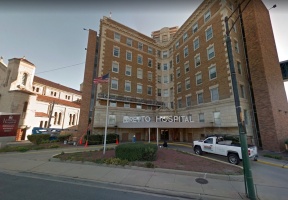

CEOs representing the Association of Safety-Net Community Hospitals met with members of the Legislative Black Caucus earlier to discuss hospital transformation, the plethora of struggles with managed care organizations (MCOs), low funding allocated to safety nets in Illinois, and an action plan to address these critical issues. Key highlights from the meeting include hospital transformation funding, care coordination, service authorizations, and safety-net hospital physician rosters. The meeting took place in Loretto’s 6th floor auditorium with CEOs representing about eight safety-net hospitals spanning the west and south sides of the city. CEOs in attendance include: Jose Sanchez, Norwegian American Hospital; Carol Schneider, Mercy Hospital; Tim Egan, Roseland Community Hospital; Tim Caveney, South Shore Hospital; Chuck Holland, St. Bernard Hospital; William Dorsey, Jackson Park Hospital; Larry McCulley, Touchette Hospital; and George N. Miller, Jr. from The Loretto Hospital.
By definition, a safety-net hospital provides health care to individuals regardless of their insurance status or ability to pay. Moreover, more than half of a safety-net’s patient base are recipients of Medicaid. Like Loretto, other hospitals represented at the meeting have more than 60 percent of their patients receiving Medicaid, with a smaller percentage coming from either self-pay, Medicare, or commercial insurance. During the meeting, CEOs expressed the importance for timely, equitable funding – a need that exceeds that of affluent hospitals where the majority of their payments come from self-pay and commercial insurance. Hospital Transformation Funds totals $263 million which is allocated to 95 hospitals across the state, and about $140 million of that amount will be allocated to safety-net hospitals. According to CEOs seated at the table earlier today, they require additional funding beyond the current allocation due to their high Medicaid percentage and their inability to offset losses on private payers. In addition, the state only pays about 23 cents on a dollar for Medicaid reimbursements.











